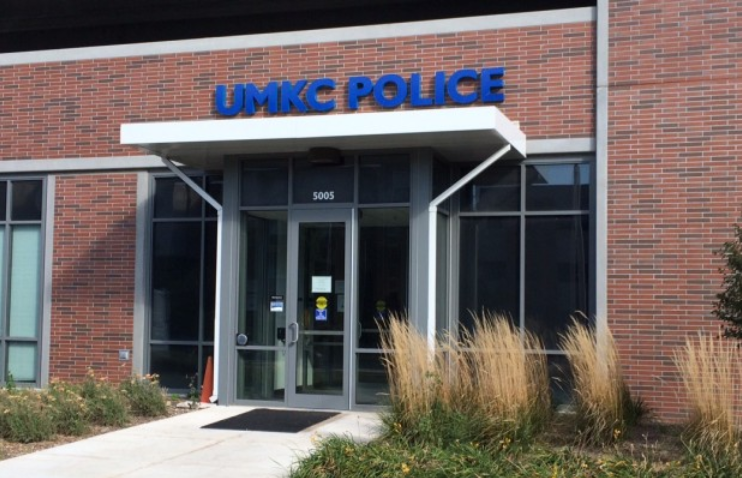The UMKC Police Department updated its policies and procedures this summer to clarify their officers’ duty to intervene and what is considered an unacceptable use of force.
According to UMKC Police Chief Michael Bongartz, the department added the following to its policies and procedures on July 17:
“All members of the Police Department must recognize and act upon the duty to intervene to prevent or stop any other Police Department member from conducting any act that is unethical, that violates law or policy (e.g., excessive force, theft, fraud, inappropriate language, sexual misconduct, harassment, falsifying documents, inappropriate behavior, etc.). Intervention may be verbal and/or physical. Failure to intervene may subject a Police Department member to disciplinary action.”
The changes come following an incident last spring in which Minneapolis resident George Floyd died while being restrained by police. Minneapolis Police Officer Derek Chauvin was charged in June with one count of second-degree murder, in addition to third-degree murder and second-degree manslaughter, after he allegedly knelt on Floyd’s neck for seven minutes and 46 seconds. Three other officers involved in the arrest have been charged with aiding and abetting second-degree murder for failing to intervene.
Per the statement, UMKCPD officers would now be required to intervene in incidents similar to the arrest of Floyd. In its updated policy, the department also clarified its position on the use of the controversial neck restraint technique used by Chauvin.
“At the request of campus leadership, UMKCPD reviewed its policies and procedures following the tragic death of George Floyd,” Bongartz said. “In updating policy, we also added specific language on what we don’t do: The department prohibits any type of neck restraint, and has never allowed and does not have any policy that would allow for kneeling on an individual’s neck.”
Bongartz also said the department has routinely trained its officers in de-escalation tactics and in fair and impartial policing, including cultural competency, communication and intrinsic bias, racial profiling for traffic stops and field contacts.
UMKC Student Government Association Vice President Mahreen Ansari commended the department’s changes.
“I felt really appreciative that they had listened to not only current events, but also some of the outcries of students we have on campus and how they decided to take a step in the right direction,” Ansari said.
She also said there are is still room for improvements to the department’s policies.
UMKC Men of Color President Nabil Abas said he appreciated the department’s initiative in updating its policies, but he questioned how and if UMKCPD would enforce the changes in the future.
“Yes, it’s good to have these policies in hand but how far would this policy go?” Abas asked. “If anything comes up, will these policies be followed?”
He said this is a step in the right direction, but he has concerns about if these policies will be equitable for all.
“Are we making sure the relationship between the police department and students is a two-way street?” Abas asked. “I think that’s our next big step towards making sure this is good for the university as a whole.”
Despite his hesitations, Abas praised the overall conduct of the UMKCPD and said he’d never heard from students of any incidents of racial bias or profiling by the department.
However, Ansari said she had heard from students that feel they have been profiled by the UMKC police.
“I’ve heard from some students, incidents of men being profiled by the police,” said Ansari. “But I’ve haven’t heard anything thus far about any brutality.”
Ansari felt uncomfortable commenting on the specifics of such incidents, preferring to let those affected speak of their own accord.
ccwykr@mail.umkc.edu
ljk6f4@mail.umkc.edu








